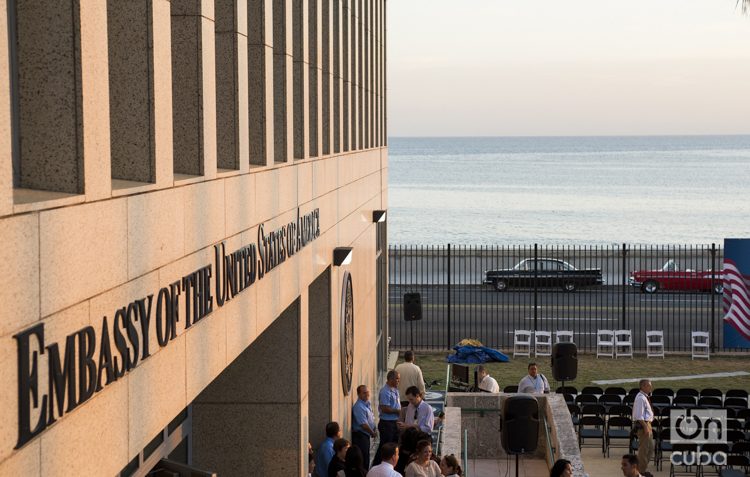According to a recently declassified report, mismanagement and lack of coordination dominated the response of the administration of U.S. President Donald Trump to the alleged “sonic attacks” that affected the health of 26 employees of the U.S. embassy in Havana.
The document, made public at the request of the NGO National Security Archive, reveals that the United States’ response to these incidents was “dominated by a lack of leadership, ineffective communication and systematic disorganization” and questions the work of then Secretary of State Rex Tillerson.
“An official was never appointed to have general responsibility,” underlines the report, prepared by the State Department’s Accountability Review Board (ARB), whose mission is to independently review any security incident at the United States embassies around the world.
The document collects the conclusions of four months of investigation of the ARB, and each page is headed by the word “secret.”
Trump lacked evidence to accuse the Cuban government
On the other hand, the report shows that Trump ordered the removal of 60% of the embassy on the island without having proof of the alleged responsibility of the Cuban government in the mysterious attacks, which occurred between November 2016 and August 2017.
In 2017, Trump himself accused Cuba of being responsible for what the U.S. authorities described as “acoustic” or “sonic” attacks.
However, the declassified report reveals that the State Department did not really know what caused its staff to suffer symptoms similar to those of brain injury, dizziness, headaches and lack of ability to concentrate.
“The mechanism for the cause of the injuries is currently unknown. We do not know the motive behind these incidents, when they actually commenced, or who did it,” the document reads.
The NGO National Security Archive, whose mission is to declassify historical documents, obtained the aforementioned report through a lawsuit under the Freedom of Information Act (FOIA) by which citizens and organizations can request through the courts the disclosure of government documents of public interest.
These alleged health incidents were one of the main points of friction between Cuba and the administration of Trump, who during his four-year term reversed the thaw promoted by his predecessor, Barack Obama.
According to Peter Kornbluh, director of the Cuba Documentation Project at the National Security Archive, the institution that managed to declassify the report, the disclosure “does not solve the enduring mystery of what happened in Cuba.” In his opinion, the clues to solve it are probably in the still secret records of the State Department, the CIA, the FBI and the Pentagon, and knowing them is of special relevance now, when the Biden administration considers resuming the Obama policy of rapprochement and reestablishing the work of the embassy in Havana. “No one believes that Trump’s decision to include Cuba on the list of state sponsors of terrorism, just before leaving the White House, was gratuitous.”
Apart from the U.S. diplomats, 14 other employees of the Canadian embassy in Havana suffered some damage to their health since the beginning of 2017, which led to a reduction in staff.
The departure of the embassy personnel affected thousands of Cubans who were left without the possibility of obtaining a visa to travel to that country. Since 2018 they have been forced to travel to Mexico City or Guyana to complete these procedures.
The new president, Joe Biden, has announced that he is reviewing the actions taken by Trump regarding Cuba.
EFE/OnCuba










